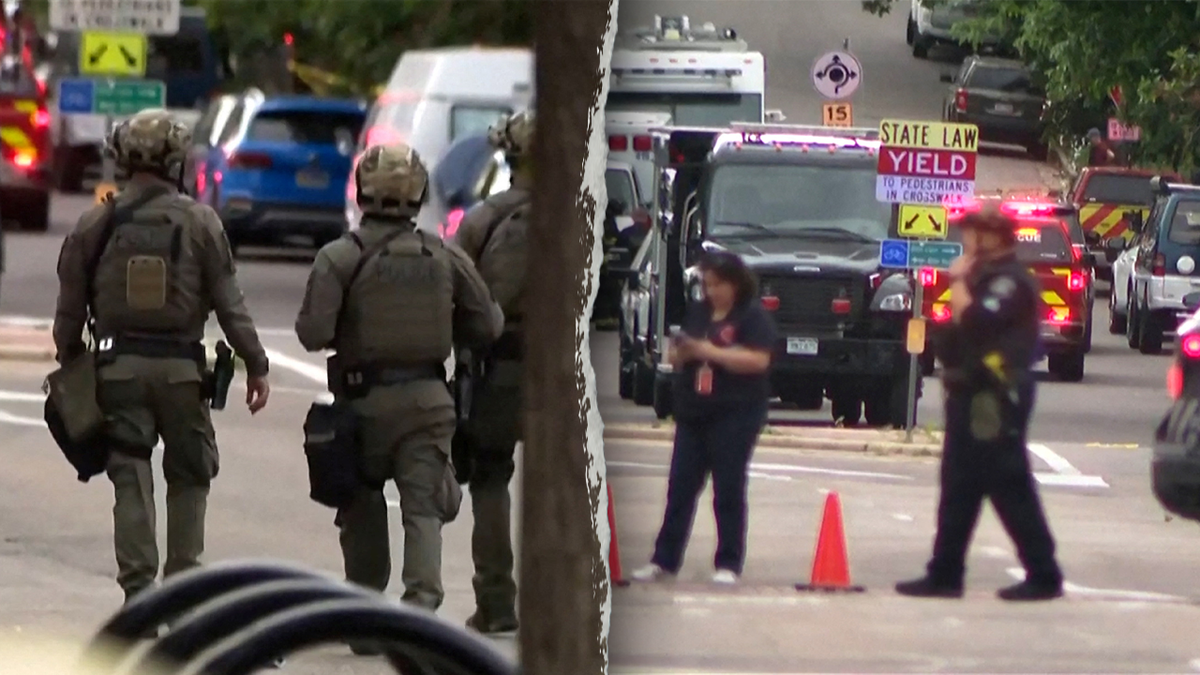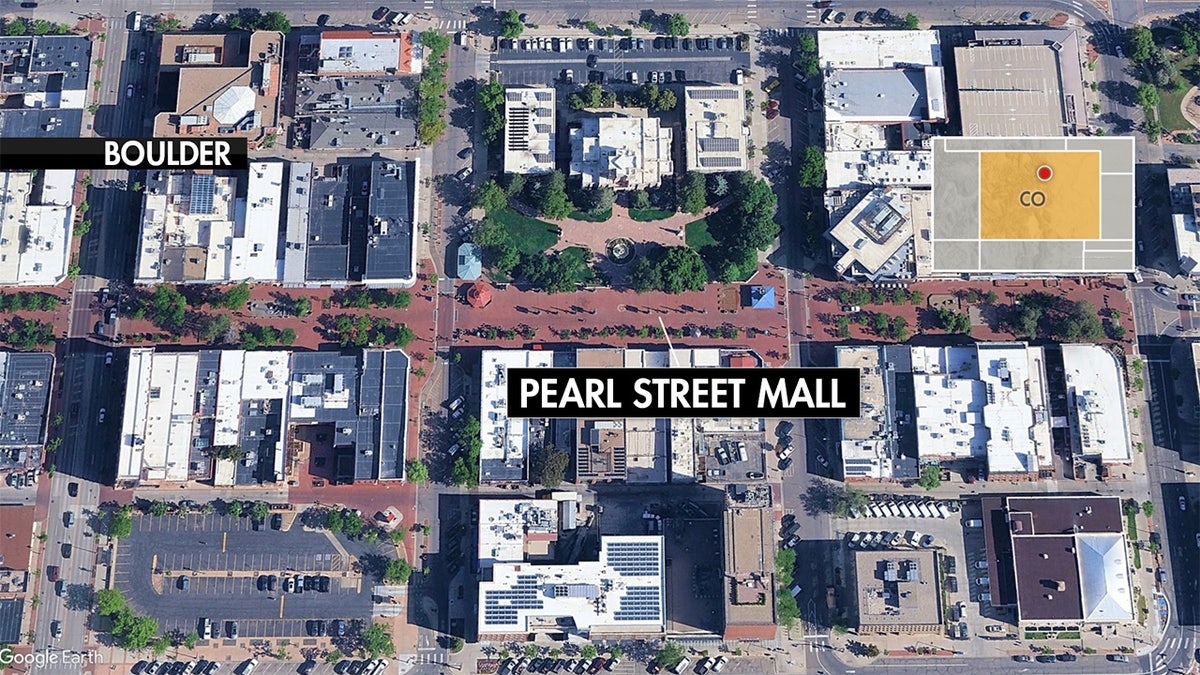
Mohamad Soliman was in the country illegally. He entered the US in 2022 during Joe Biden’s administration.
| Published June 2, 2025
Mohamed Sabry Soliman is an Egyptian national whose visa, which was granted during the Biden administration, expired in March 2025
The recent arrest of Mohamed Sabry Soliman, a 33-year-old Egyptian national accused of plotting a terror attack in Boulder, Colorado, has raised renewed attention to gaps in the U.S. immigration and visa monitoring system. According to multiple reports, Soliman originally entered the United States legally on a student visa in 2019. However, he remained in the country after his visa expired, joining a growing number of foreign nationals who overstay their legal entry.
Government records confirm that Soliman was granted a work permit in 2023 under provisions of the Biden administration. That permit allowed him to seek lawful employment, despite his undocumented status at the time. The process by which he received that authorization has come under scrutiny in the aftermath of his arrest.
BREAKING: Three senior DHS sources tell @FoxNews that the Boulder terror suspect is an Egyptian national in the U.S. illegally as a visa overstay who entered the U.S. during the Biden administration. I’m told Mohamed Sabry Soliman arrived at LAX on 8/27/22 on a B1/B2 nonimmigrant…
— Bill Melugin (@BillMelugin_) June 2, 2025
Dan Bongino tweeted out that the FBI is on the scene.
FBI personnel are on the scene in Boulder, Colorado, along with local law enforcement.
We are investigating this incident as an act of terror, and targeted violence. All of the necessary assets will be dedicated to this investigation.
If you have any investigative tips please…— Dan Bongino (@FBIDDBongino) June 1, 2025
Authorities say Soliman was arrested while attempting to carry out an attack that could have resulted in mass casualties. While investigations are ongoing, immigration officials have verified that he was not in the country legally at the time of the alleged plot.
The situation has prompted concern among immigration analysts and former government officials who point to long-standing vulnerabilities in the U.S. visa overstay tracking system. Estimates suggest that hundreds of thousands of individuals remain in the U.S. past their authorized stay each year, often with limited enforcement mechanisms to locate or remove them.

Police work at the scene after an attack that injured multiple people in Boulder, Colorado, U.S. June 1, 2025 (Reuters | Fox News Digital)
Work permits, or Employment Authorization Documents (EADs), are typically issued through programs such as Temporary Protected Status (TPS), asylum processing, or prosecutorial discretion. It remains unclear under which specific category Soliman received his permit. However, his case has reignited calls to reassess the balance between humanitarian relief, immigration enforcement, and national security priorities.
Soliman’s case is now being cited in broader debates about administrative authority and the screening procedures involved in issuing work permits. Critics and advocates alike agree that it underscores the importance of maintaining secure, up-to-date immigration records and ensuring rigorous follow-through on visa expirations.

Boulder Police Chief Stephen Redfearn speaks at a news conference following an incident involving multiple injuries that the FBI is investigating as an act of terror on June 1, 2025, in Boulder, Colorado. (Photo by Chet Strange/Getty Images)
As the case moves forward through the legal system, further details about Soliman’s application history and interactions with immigration services are expected to come to light. In the meantime, lawmakers and immigration experts continue to examine how such cases might inform future policy reforms.

A map of the scene shows the approximate location of the terror attack. (Fox News)
Here’s a follow-up that explores the implications of the Mohamed Sabry Soliman case—factually and contextually—without drawing political conclusions:
Policy Implications: What the Soliman Case Signals About U.S. Immigration Oversight
The arrest of Mohamed Sabry Soliman has cast a spotlight on systemic vulnerabilities in the U.S. immigration process, particularly in how visa overstays are tracked and how federal agencies issue work permits. While investigations into Soliman’s alleged activities are ongoing, several key implications have emerged.
1. Visa Overstay Monitoring Gaps
Soliman’s case underscores ongoing challenges in monitoring individuals who remain in the country after their visas expire. While legal entry through a student visa is common, the transition from lawful status to undocumented presence remains loosely enforced. According to the Department of Homeland Security’s annual overstay report, hundreds of thousands of people overstay visas each year—often with limited follow-up. The case suggests that better tracking systems or exit controls may be necessary.
2. Work Permit Policy Review
One of the most pressing questions in the wake of this case is how Soliman received a work permit despite having overstayed his visa. Employment Authorization Documents (EADs) are often issued in good faith through various channels, including pending asylum claims or discretionary relief. However, critics argue that the screening mechanisms used to vet these applications may need to be reassessed to prevent potential national security risks.
3. Administrative Discretion vs. Enforcement
The broader context also raises questions about the balance between humanitarian considerations and enforcement. Over the past decade, U.S. administrations from both parties have relied on discretionary tools to manage caseloads and provide relief to those with pending applications. Soliman’s case could lead to tighter scrutiny of such discretionary decisions, especially in cases where applicants have limited legal grounds to remain.
4. Political and Legal Fallout
Though not yet the focus of formal hearings, Soliman’s case could influence congressional oversight or legal challenges related to executive immigration policies. Already, lawmakers and legal analysts are using the case to discuss the boundaries of agency authority, accountability in permit issuance, and national security protocols.
5. Calls for Reform
Finally, this case adds to longstanding calls from across the political spectrum to reform the U.S. immigration system. Proposals include enhanced visa tracking, biometrics at exits, improved inter-agency coordination, and changes in how and when work permits are granted. Whether this incident will spur legislative action remains to be seen.
Overall Takeaway:
The case of Mohamed Sabry Soliman reflects a convergence of issues within the U.S. immigration system: a lack of rigorous enforcement for visa overstays, gaps in the vetting process for work permit issuance, and the challenges of balancing humanitarian policy with national security concerns. While Soliman entered the U.S. legally, his ability to remain in the country unlawfully and obtain work authorization points to structural weaknesses that have persisted across administrations.
Rather than representing an isolated failure, this case highlights broader systemic issues that have long been acknowledged but remain difficult to resolve. It raises important questions about how federal agencies track overstays, how they evaluate eligibility for benefits like work permits, and how interagency communication can be improved to prevent risks. Regardless of political stance, the incident has renewed calls for tighter oversight, more transparent processes, and long-term reforms to ensure that legal pathways to entry and stay are secure, fair, and accountable.





Be the first to comment